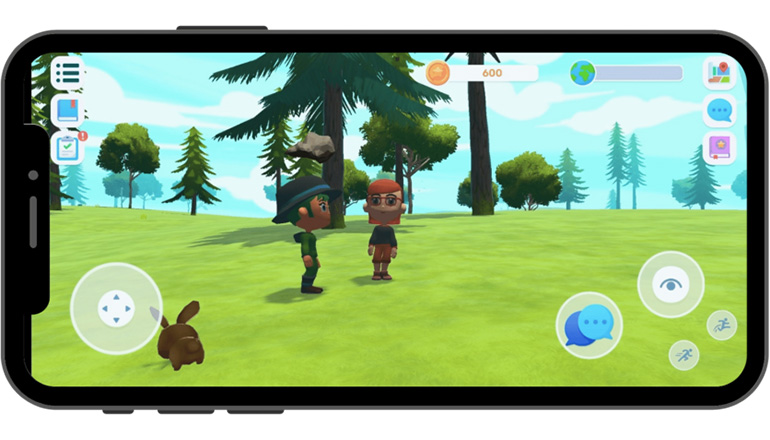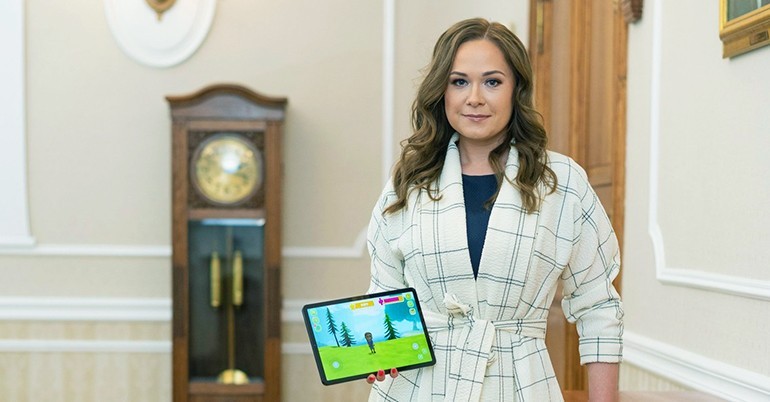Estonian mental health game Triumfland Saga is changing the world
The founder of the company Kadri Haljas, who has a PhD in psychology, writes about how technology can make mental health management available to children regardless of their location, native language and cultural background.
Being a child in today's world is not an easy feat. Children face numerous challenges, from academic pressure and social media comparisons to changes in family structures and exposure to traumatic events through the (social) media. The fast pace of technology and the constant barrage of information can be overwhelming, and it can be difficult for children to navigate their emotional and social lives. The pandemic certainly didn’t make life any easier for children, actually research shows the opposite – the mental health of children and youth has taken the hardest hit over recent years. For instance, there has been a notable rise in feelings of hopelessness among children and youth. This can make pursuing a brighter future seem unfeasible, given the distressing events happening in the world that can be difficult for children to understand and process.
Meanwhile, the World Health Organization reports that half of all mental health disorders emerge by the age of 14. The number of mental health disorders in children has increased significantly in recent years but the global children’s mental health crisis was already a burning global problem before the pandemic. Unfortunately, many of children’s mental health cases go undetected or receive treatment only after a significant delay. Even when treatment is sought, access to care can be limited and dropout rates can be high.
While the overall picture may seem dark, there is certainly a light at the end of the tunnel! But this requires a mindset shift – a shift from dealing with the consequences and disease management to prevention and promotion. As life presents many challenges, it’s important to equip children with coping mechanisms early on to avoid potential mental health problems. None of us is born resilient but we have absolutely everything that it takes to build resilience. However, becoming resilient requires building mental health management skills and making it a habit. Mental health does not improve by chance – it does take effort. And effort is not something that children are especially passionate about these days. So how to encourage children to learn new skills to build resilience?

Here’s where the Estonian healthtech + edtech startup Triumf Health comes in. The company was founded in 2017 by Kadri Haljas, a doctor in psychology with a vision of leveraging technology to make mental health management more accessible and convenient for children. And for all children, no matter where they live, what’s their native language or cultural background. Kadri Haljas: “We knew we wanted to put children in the centre of their health and wellbeing but allowed children themselves to come up with the concept they’d like and this is how we ended up turning mental health management into a game.”
The Triumfland Saga health game is for mental health promotion. It is aimed at children between the ages of 7 and 12. Triumfland Saga is an interactive and engaging game that teaches children about emotions, coping strategies, and self-care. Through fun and educational mini-games, children can learn through action about emotions, manage stress, and build resilience. In addition to its educational component, Triumfland Saga also promotes social and emotional learning, encouraging children to practice empathy and communication. These skills are crucial for building healthy relationships and for a sense of belonging, which are essential for good mental health.
Triumfland Saga is a valuable resource for helping children develop healthy habits for maintaining good mental health. This age-appropriate adventure game for building resilience in a fun and engaging way is available globally and in multiple languages, including, of course, Estonian. Triumfland Saga can be downloaded from Google Play or App Store. The methodology of the game is backed by science and it helps to build a measurable skillset to navigate through feelings and emotions – you can see more in the manual and have a little sneak peek from the trailer.
Kadri Haljas was named the best young entrepreneur in Tartu County in 2022 and her company won the Health and Wellness category at the World Summit Awards 2022. Her team has worked in Poland, Ukraine and Scandinavia.







